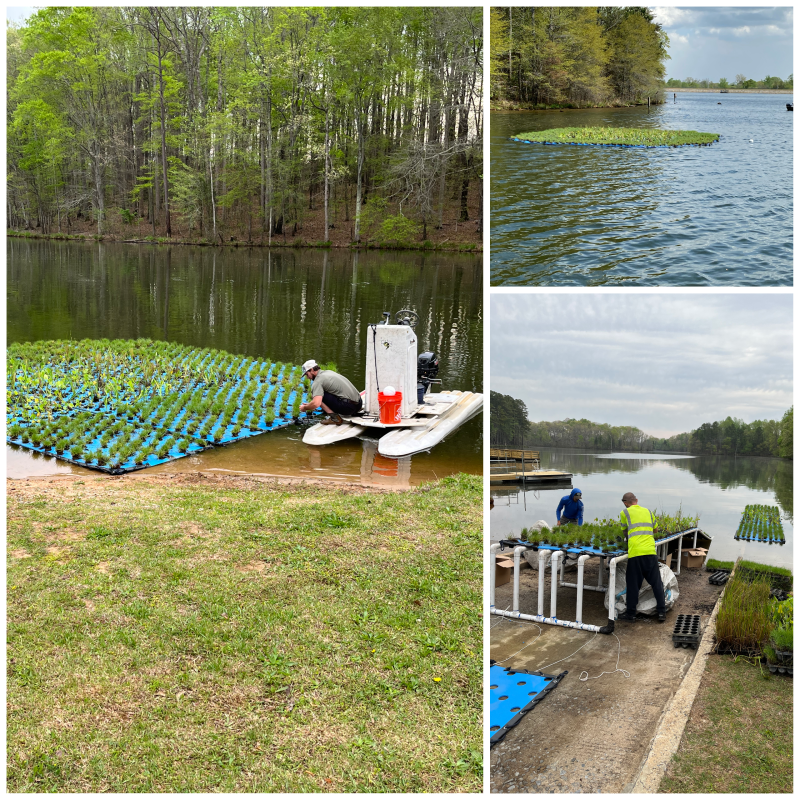Floating Wetlands Installed in Lake Whelchel
In order to combat a years-long algae bloom problem in Lake Whelchel, BPW officials have turned to an unconventional method – installing floating wetlands. A growing science, floating wetlands are large mats that contain a variety of plants and are anchored into bodies of water. The mats float on top of the water, but over time, the plants grow by extracting nutrients from the water. Some of these nutrients cause algae to bloom, which has been a thorn in Lake Whelchel’s side for the past three years. In fact, BPW officials were forced to shut down Lake Whelchel, which is our county’s primary water source, to boaters and fishers in the summers of 2019 and 2021. During that time, BPW water operators implemented additional treatment procedures to maintain normal water taste and odor until the algae were eliminated. But in order to be proactive, Water Superintendent Bryant Fleming and Lab Director Zane Knight decided to look for a better solution this year.

Fleming contacted Beemats, a company in Florida who produces and installs floating wetlands. In partnership with the Clemson Extension office, BPW pinpointed “hot spots” in Lake Whelchel that tended to produce algae. And on April 13, Beemats prepared and installed four floating wetlands in those areas of the lake. A variety of grasses and herbaceous perennials were potted into 25’ x 25’ mats. BPW and Clemson Extension will monitor and sample the lake water over the coming months to see if the wetlands are effective. In the fall, the roots will be harvested, and BPW will analyze them to see what nutrient uptake each wetlands consumed. Once the plants are harvested, they will be planted along the shoreline of each creek, where they will continue to consume nutrients and reduce the nutrient load on the reservoir.
Beemats described the Lake Whelchel project as the largest one they’ve conducted in the Upstate. Beemats, the Clemson Extension agents, and BPW officials are all excited to see how well this experiment will work. But what’s most exciting is what this project could mean for the future. “The old way, and the easy way, of treating our algae problem is by using copper sulfate,” said Fleming. “To be a frontrunner and a leader in this effort, and to help future generations find solutions for these types of water problems, is something we’re thrilled about.”

